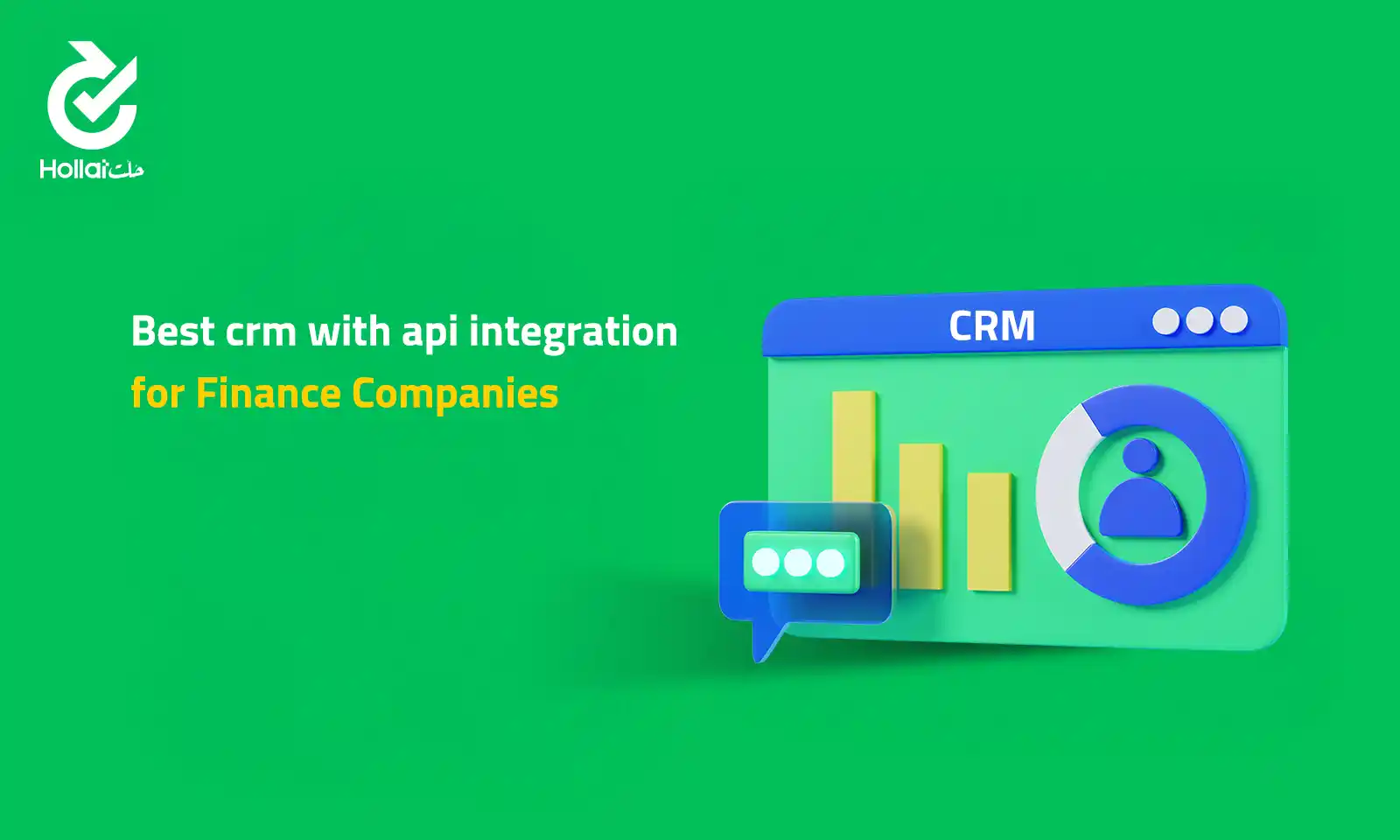Best crm with api integration for Finance

Choosing the best CRM with API integration for finance companies is essential for managing client relationships, automating workflows, and ensuring data accuracy across multiple platforms. An effective CRM with well-developed API interconnection can enable the finance departments to integrate their system all the way into accounting tools to communication systems to design a cohesive and efficient workplace that enhances decision-making and customer satisfaction.
Understanding API Integration in CRM
In crm with api integration is the process of linking the CRM platform to the rest of the software programs so that data communicated can be smoothly shared and automated. It enables the financial companies to connect their CRM with accounting capabilities, payment gateways, and communication solutions, so that there is constant up-to-date information about all the customers. The integration eradicates manual data entry, error reduction, and assists the teams to have a coherent view of all client interactions, which results in quicker processes and improved insight.
Why Businesses Need CRM API Connectivity
crm with api integration connectivity enables the business to integrate its systems and tools together, and form a centralized point of all information about customers. In the case of finance companies, it is a streamlined transfer of data between the CRM and other applications such as accounting software, billing systems, and communication applications. It assists in putting on autopilot some redundant operations, and minimizes errors on data entries, and provides the teams with a concise view of the activities of the clients. Using API connectivity, companies are able to make smarter choices, react quicker and provide more personal customer experiences.
Benefits of a Fully Integrated CRM System
An integrated CRM system is a more efficient and interconnected method of running the operations of companies. It also makes sure that every department, such as the financial and sales division or customer support, has the correct and synchronized data. This assists the businesses to enhance their communication, automate their daily operations and make better strategic decisions based on real-time information.
| Benefit | Description |
| Centralized Data Access | All customer and financial data is stored in one system, making it easier for teams to access accurate information anytime. |
| Improved Efficiency | Automation reduces manual work and minimizes errors, allowing employees to focus on more valuable tasks. |
| Faster Decision-Making | Real-time data sharing gives managers clear insights into performance, helping them make quick, informed decisions. |
| Enhanced Collaboration | Different departments can share information seamlessly, ensuring smooth coordination across the organization. |
| Better Customer Experience | Teams can respond faster and provide more personalized service with access to complete customer histories. |
| Cost Savings | Reduced duplication and automation of repetitive tasks lower operational costs and improve overall productivity. |
| Scalability | Integrated systems easily adapt as the company grows, supporting new tools or applications without disruption. |
Streamlining Data Flow Across Departments

crm with api integration
Streamlining data flow across departments is one of the biggest advantages of using a crm with api integration. It saves time because all the teams, as finance and sales to customer service, have the correct and updated information. This gets rid of data silos, minimizes manual handovers, and eliminates errors, which are generated by disconnected systems. Having the information flow without any complications between the departments, the decision making process becomes quicker, collaboration is enhanced, and customer services become more uniform and efficient.
API-Based Automation for Faster Processes
The API based automation enables companies to integrate CRM with other applications to automate repetitive business processes. Rather than manually inputting data or moving between platforms, data is relayed instantly across systems such as finance, sales and customer support. In the case of finance companies, this results in quicker approvals, instantaneous updates with the client, and reduction of human mistakes. Through APIs, the teams will be able to work more effectively, save time, and concentrate on more strategic tasks that encourage growth.
How to Secure API Connections in CRM
The API connections in a CRM system must be secured to ensure sensitive business and customer information is safeguarded. The finance companies, in particular, are heavily banking on the tight security of APIs to keep data confidential and secure. The following are the main measures that can be taken to ensure that your CRM relationships are secure:
- Authenticate safely using OAuth 2.0 or tokens.
- All data transmissions should be encrypted by using SSL/TLS to avoid data be intercepted.
- Limit API rate to prevent abuse or DDoS attacks.
- Monitor and audit API traffic on a regular basis to identify suspicious activity.
- Traffic control and unsafe connection filtering through API gateways.
- Ensure that all APIs are patched and improved with security.
Real-Time Data Sync Between Systems
Live information exchange between the systems makes sure that all the tools and platforms connected with each other have the latest information immediately. In a crm with api integration, this means every customer record, transaction, or update is reflected across departments without delay. In the case of finance companies, this gets rid of data mismatch, it makes decisions faster and the client information is always up to date. The real time synchronization makes teams to work more efficiently, making the communication better, and the teams do not miss any important details.
Common API Use Cases in CRM Platforms
CRM systems are also flexible and more powerful using APIs to integrate with other business tools. This enables the companies to automate their workflow, enhance accuracy of data, and provide faster service. The following are the most frequent API applications in CRM applications:
- Connection to Accounting Software: Automatically connect invoices, payments and financial transactions between the CRM and the accounting systems.
- Marketing Automation: Co-ordinate with email marketing options to follow campaigns, leads, and customer contacts in real time.
- Customer Support Systems: Include live chat or ticketing, or help desk systems to get a full picture of customer interactions.
- Sales and Lead Management: Website, social media or advertisement leads can be captured and sent directly to the CRM to be followed up.
- Analytics and Reporting Tools: Sieve Share CRM data with analytics tools to create performance reports and insights.
- Payment Gateway Integration: Processing: This program enables transactions to be completed safely and automatically in the CRM.
- Communication Platforms: Coordinate Sync emails, SMS, and WhatsApp messages to enable teams to work on all discussions in a single platform.
Hollat CRM — Flexible Integration for Any Business
Hollat CRM supports a smooth API integration with the accounting, ERP, marketing, and support systems. It is suitable to businesses of any size because of real-time data sync, workflow configuration and scalability.
Connect with your systems each other and increase productivity. Get in touch with Hollat CRM.
FAQS
What is CRM API integration?
The API integration will allow your CRM to interact with other programs and exchange data in real-time and automated processes.
What are the benefits of API integration to businesses?
It simplifies the work, lessens manual processes, enhances accuracy and enables teams to make could decisions with a lot of speed.
Does Hollat CRM have any software integration?
Yes, Hollat CRM would like to have some flexibility in the integration with accounting, ERP, marketing, support, and others.
